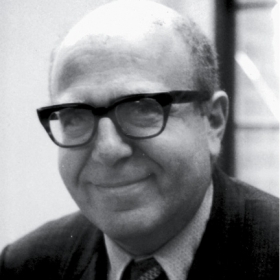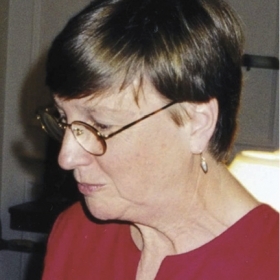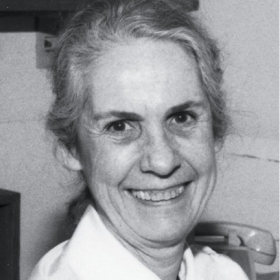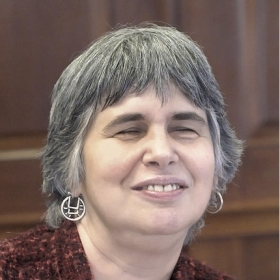The passing of Gabriel H. Lovett on Dec. 22, 2013, signifies the loss of one of the most distinguished Hispanists of our time. Beyond making lasting contributions to our understanding of Spanish culture, Don Gabriel was a keen observer of Europe and the world in general—from his own birth in Berlin in 1921, to his studies in Paris under the tutelage of Jean-Paul Sartre at the Institute Henri IV, to his exile to the US following Hitler’s rise to power, and his studies and eventual teaching at New York University. He joined the faculty of the Department of Spanish of Wellesley College in 1969 and has left a legacy that is impossible to measure.
Despite not having had the opportunity to enjoy his company as much as I would have liked during recent years, I remember clearly and fondly all the good times we had together while we were colleagues. I and the two other “young” teachers (Lorraine Roses and Joy Renjilian-Burgy) who joined the Wellesley faculty in the 1970s would call him “Harrito” as a sign of both affection and respect. Others of course called him plain old “Harry”—but we felt a different and more intimate working and personal relationship. And he, with his unflagging wit, liked to call us—also very affectionately—las barracudas. I remember how odd it seemed at the time that he would often walk around the campus talking to himself in Spanish. He did it not as an eccentricity, but, as he would say, “I had no chance to practice outside of class.” His love for Spain and the Spanish language had no limits, as he made clear in the postscript to his 2008 Memoirs of an Outsider:
Nevertheless, the Spanish language has not changed. To me it is still the most beautiful speech in the world. Especially when spoken extremely well, as in certain regions of Spain, such as Toledo, la Mancha, etc., and in some Latin American countries like parts of Colombia. For me, speaking Spanish is always an exhilarating experience. It seems to be I can express my thoughts and feelings with greater power than in any other European language.
A polyglot (German, French, English, and Spanish), he penned some of the seminal works of Hispanic studies, including, Napoleon and the Birth of Modern Spain (1965), A Concept Approach to Spanish (1965), Encyclopedia of Latin-American History (1968), The Duke of Rivas (1977), and Romantic Spain (1990).
As a colleague, the best of Don Gabriel was his charm, his sense of humor and outlook on life—full of intelligence and insight (and even clairvoyance). Regrettably, his 2008 autobiography was published only in a limited edition, and it would be important to re-issue. The prose is expectedly brilliant, and he offers a unique vantage point from which to view important historical events that now seem distant, but that were vital for him and for all of us in Europe and the US. I will quote the last paragraph because it encapsulates his belief in and his commitment to historical truth:
I have never been able to forget our years in Spain and the Spanish Civil War, I am still trying to sort out the problems posed by that conflict. I do still believe, however, that in spite of Soviet involvement in the Spanish conflict, in spite of the fact that so many communists volunteered for service in Spain, and in spite of so many outrageous episodes that took place on the Republican side in the years 1933–1939, the struggle of the Spanish Republic to free itself from the stranglehold of ultra reactionary Spain supported by Fascist states of Germany, Italy, and Portugal while being denied the right to buy weapons from the so-called Western democracies, when all was said and done, was a good fight, I will believe this until the day I die.
Dear Harrito, despite the fear you had of dying, and my folly in having said to you years ago that no matter when you would die, it would not be at a young age, I am very glad that you lived, in the end, a long and full life. Rest in peace.
Elena Gascón-Vera is a professor of Spanish at Wellesley.








We ask that those who engage in Wellesley magazine's online community act with honesty, integrity, and respect. (Remember the honor code, alums?) We reserve the right to remove comments by impersonators or comments that are not civil and relevant to the subject at hand. By posting here, you are permitting Wellesley magazine to edit and republish your comment in all media. Please remember that all posts are public.